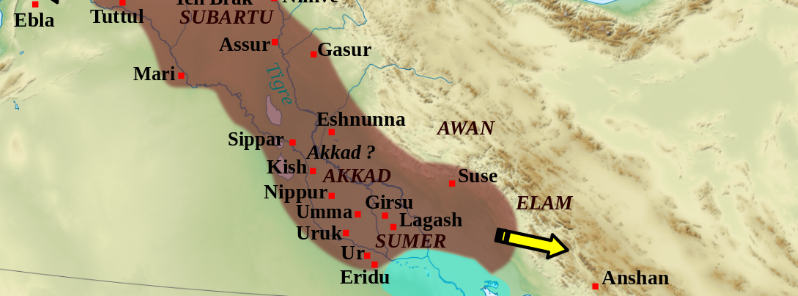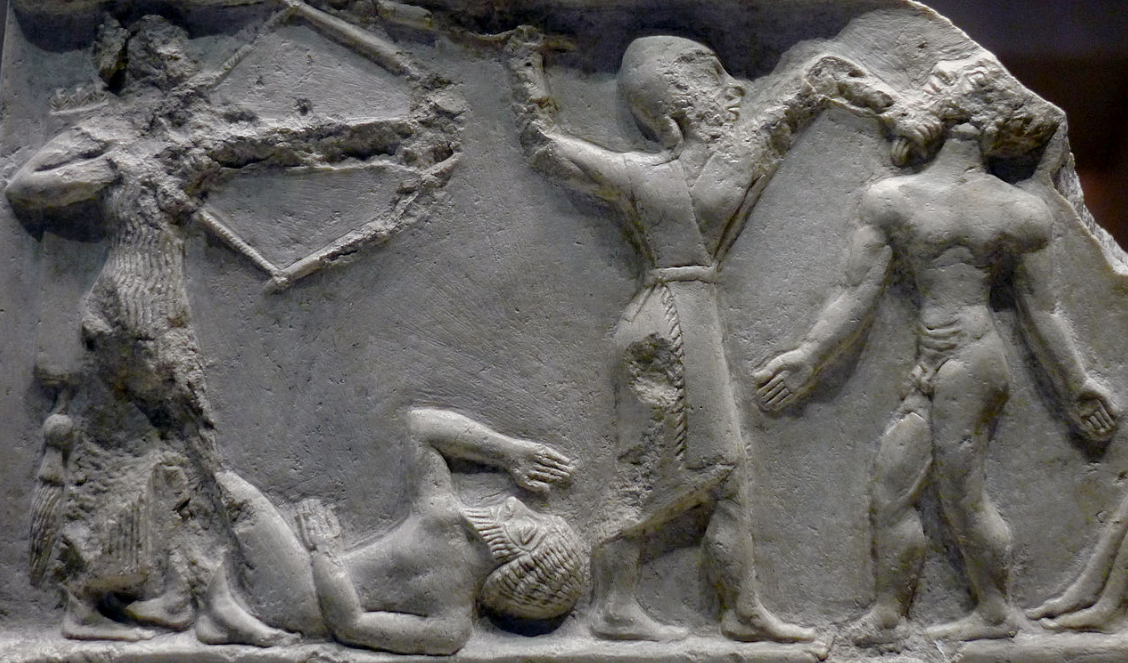Powerful winter dust storms may have triggered Akkadian empire downfall

A recently published study suggests that strong winter dust storms may have caused the Akkadian empire to collapse. The research said fossil coral records from Oman provided new evidence that frequent dust storms and prolonged winter season contributed to the empire's downfall.
The Akkadian Empire was the first empire in Mesopotamia and the first true kingdom that existed during the third millennium BC. However, the empire did not last, making its downfall a topic for debate up to the present.
Past studies have suggested that the ancient empire probably collapsed due to abrupt drought and civil turmoil. However, the climatic dynamics which lead to widespread agricultural failures and the empire's supposed end have yet to be sufficiently explored.

Image credit: Wikipedia
In the news study, researchers from Hokkaido University, the KIKAI Institute for Coral Reef Sciences, Kyushu University, and Kiel University said the collapse may have been due to strong winter dust storms.
The scientists came up with it after they made paleoclimatic reconstructions of the temperature and changes in hydrological aspects of the areas around the archaeological site of Tell Leilan, the core of the Akkadian Empire. They used samples from six 4 100-year-old fossil Porites corals from the Gulf of Oman. The scientists applied radiocarbon dating to geochemically examine and confirm if the samples have not been majorly changed from their current state.
The coral data was compared to coral samples from the modern period. Although it is common for the survey area to see a significant amount of rain during winter, the coral information suggests that during the Akkadian Empire's collapse, the area suffered from major dry spells that were sudden and powerful. Moreover, fossil evidence backed the prolonged winter hypothesis.
The impact of the dust storms and lack of rainfall would have caused severe agricultural problems, which perhaps caused famine and social instability– both factors which have been associated with the empire's downfall.
"Although the official mark of the collapse of the Akkadian Empire is the invasion of Mesopotamia by other populations, our fossil samples are windows in time showing that variations in a climate significantly contributed to the empire's decline," said Tsuyoshi Watanabe of Hokkaido University's Department of Natural History Sciences and one of the researchers. "Further interdisciplinary research will help improve our understanding of connections between climate changes and human societies in the past."
Reference
"Oman corals suggest that a stronger winter shamal season caused the Akkadian Empire (Mesopotamia) collapse" – Watanabe, T.K. et al – Geology – DOI: 10.1130/G46604.1
Abstract
The Akkadian Empire was the first united empire in Mesopotamia and was established at 4.6 kyr B.P. (where present is A.D. 1950). The empire abruptly collapsed in 4.2 ± 0.2 kyr B.P. Seasonal-scale climatic dynamics behind this collapse have not yet been resolved. Here, we present monthly climatic parameters (temperature and hydrology) inferred from fossil Omani corals that lived between 4.5 and 2.9 kyr B.P. Winter temperatures derived from a modern Omani coral correlate with winter shamal (western Asian dust storm) frequency. A fossil coral from 4.1 kyr B.P. shows a prolonged winter shamal season with frequent shamal days. This likely caused agricultural failures in Mesopotamia and contributed to the Akkadian Empire collapse, as this region depends on winter rainfall.
Featured image credit: Wikipedia

Commenting rules and guidelines
We value the thoughts and opinions of our readers and welcome healthy discussions on our website. In order to maintain a respectful and positive community, we ask that all commenters follow these rules.